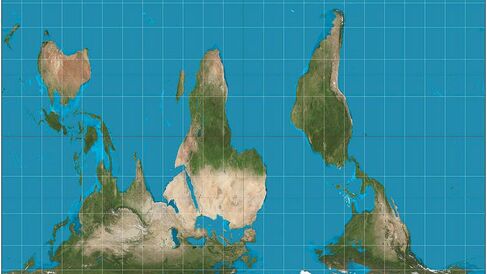Religion and Global Challenges Initiative

The Religion and Global Challenges Initiative seeks to generate tangible and sustainable solutions to worldwide problems by deepening understanding of the role that religious communities play – and could play – in exacerbating or in alleviating such problems.
The CIP Religion and Global Challenges Initiative brings together theologians, social and natural scientists and religious communities to think through the most pressing global challenges facing us today.
Economic inequality, forced migration, environmental and health concerns, regional and global conflict, and the deterioration of political and religious freedoms continue to threaten human flourishing and existing social structures. It is therefore more crucial than ever to understand the factors contributing to them and their wider effects, and to bring a wide range of voices – including voices from religious perspectives – into the debate about our common future.
The vast majority of the world’s population participates in religious communities, and there is no area of society religion does not touch. This makes our focus on the role of religion in global challenges strategic and gives our research significant potential for real-world impact. CIP has already pioneered new approaches to promoting healthier interreligious relations, and has an existing research programme in Religion, Scripture, and Violence. Through this initiative, we are building on our existing work and broaden our focus to include new strands such as:
- Religion and the Environment (listen to the RGC podcast; and see our Water research)
- Religion, Race, and Inclusive Societies (see, for example, work on antisemitism, Islamophobia and racism)
- Religion, Conflict, and Violence (see The Scripture and Violence project)
- Migration, Displacement, and Coexistence (see, e.g., Shared Sacred)
- Religion, Poverty, and Economic Inequality
- Religion, Global Health, and Matters of Life and Death
- Religion, Law, and Freedom
Alongside academic study, we are also deeply invested in the public’s engagement with these topics. A core driving element of CIP is a desire to promote shared understanding and knowledge exchange between different religious traditions and between religious traditions and broader society. To do this effectively, we must work directly with these communities, as well as with the wider public.
For each area of investigation, research and public engagement is driven by three key questions:
- How does this global challenge shape relations among different religious communities, both locally and internationally?
- How does conflict between different religious communities exacerbate this global challenge, and impair efforts to address it?
- How might collaboration and knowledge exchange between different religious communities help create solutions to this global challenge, and what under-explored resources already exist within those communities and traditions that could help generate solutions?
We launched the Religion and Global Challenges Initiative in 2020. Our scholars are now actively seeking creative new solutions to global problems—drawing upon theological research, cutting-edge methods in social sciences, models and analysis offered by natural scientists and engineers, and conversation with contemporary religious communities.
Our goals are ambitious. Cambridge has the expertise, experience and international reach to bring these to fruition. CIP acts as a convenor and catalyst for new activity, creating a vital new hub for the public and academic discussion of religion and its impact on the world, now and into the future.
Through the CIP Religion and Global Challenges Initiative, we are:
- bringing together talented researchers with expertise in religious studies, social and natural sciences, theology, ethics, and philosophy to engage in high-impact research projects.
- enabling knowledge exchange with faith leaders across the globe to bring their voices into the interdisciplinary, interfaith debate on global challenges.
- promoting innovative use of digital tools and new technologies to maximise research impact and engage the general public, policymakers, and religious communities on these challenges.
Outcomes and opportunities
CIP Podcast: Religion and Global Challenges
Opportunities: Visiting Fellowships for scholars from the Global South | Conference: Being with Water OTHERWISE | Summer School: Religion and Climate Futures
Resources: Scripture and Violence: tackling text-based prejudices (scriptureandviolence.org)
Shared Sacred: a digital exhibition of landscapes shared by people of ‘different’ faith (sharedsacred.com)
About the image: The featured image shows a detail from Daniel R Strebe’s South-up Peters Projection, combining a way of visualising the globe that more accurately reflects the relative sizes of different countries (the Peters Projection), and an inversion of the poles that may provoke viewers to reconsider how we conceive of global priorities. Read more about this perspective-changing work courtesy of TheConversation.com. Strebe’s images are licensed for reuse on a CC-BY-SA (share-alike) basis.
